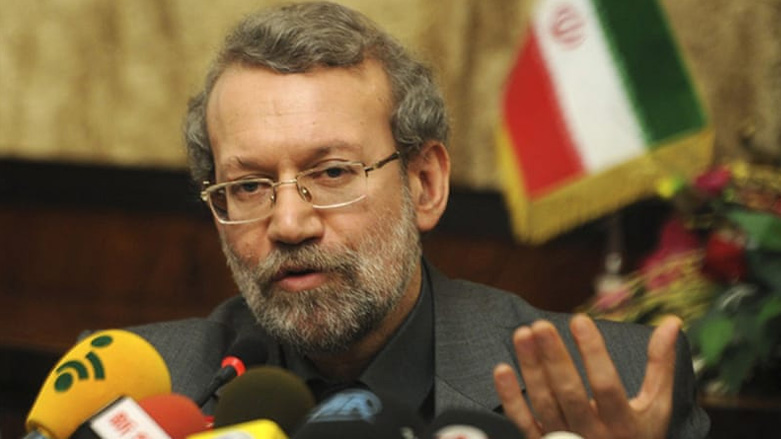Iran looking to Iraqi post-IS reconstruction to bolster economy after presidents meet

ERBIL (Kurdistan 24) – Despite economic struggles and US sanctions, Iran claims it can contribute to post-Islamic State (IS) reconstruction in Iraq, welcoming the idea of industrialized commercial zones along the border, according to Iranian Parliamentary Speaker, Ali Larijani.
Larijani’s remarks came during a meeting with Iraqi President Barham Salih in Tehran on Saturday.
“Iran and Iraq are countries that are naturally connected, and other [states] should not make futile efforts to separate us,” the speaker said, quoted by Iran’s Mehr News Agency.
Larijani noted that there are many opportunities for the neighboring states to deepen their ties, saying Iranian companies are “ready to contribute” to Iraq’s reconstruction in the post-IS era.
The Iranian official welcomed the concept of shared industrial zones in the bordering towns of Mariwan and Mehran, which was suggested by Salih.
“We have had a good experience with Turkey in that regard, and we believe that such cooperation would facilitate the transfer of technology and expertise between the two countries,” Larijani explained.
He added that the two states’ chambers of commerce should have closer ties.
Larijani, however, highlighted security issues on its border with Iraq, stating he hopes Bagdad will be a part of the joint parliamentary committee to ‘combat terrorism,’ of which Iran, Russian, Turkey, Afghanistan, and Pakistan are members.
On the same day, Iranian President Hassan Rouhani, also during a meeting with Salih, said Iran and Iraq could increase their annual bilateral trade numbers to $20 billion, from the current $12 billion, despite concerns over the impact of renewed US sanctions on Tehran targeting the energy and financial sectors.
Editing by Nadia Riva
